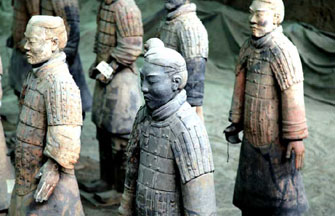A life lived among tombs memorialized
By Xing Yi ( China Daily ) Updated: 2014-12-24 07:33:42There were 12 Qing emperors and hundreds of royal family members buried in Beijing's suburbs. Their tombs were neglected and ravaged by the elements after the dynasty fell in 1911. Even the royal families' descendants forgot them.
In 1983, Feng began surveying the tombs during his spare time.
He pored over hundreds of historical documents and maps, and scoured every remote corner of the suburbs hunting for forgotten tombs.
When he found one, he'd consult scholars, descendants of the royal families and elderly villagers to confirm the occupant's identity. Pujie, the younger brother of China's last emperor, Puyi, told his family to help Feng.
Feng published his initial findings in his first book, Royal Tombs of Princes in the Qing Dynasty, in 1996. The book was celebrated by academics and the royals' descendants, many of whom consulted Feng to determine their genealogies.
Jin Cheng, the 14th-generation grandson of the dynasty's founder Nurhaci Aisin Gioro, hails Feng as "the imperial clan's living court", referencing a royal institution responsible for chronicling the Qing's genealogy during the dynasty.
Culture scholar and Feng's longtime friend Yang Haishan recalls: "He always said: 'I'm not an expert. I'm just an ordinary worker who enjoys studying the Qing Dynasty'."
Feng took a job at the Beijing Municipal Archives in 2000. He published another book, Visiting Royal Residences in Beijing, in 2006.
Feng continued his research after his 2012 retirement.
His student, Guo Yan, says: "He went to the Capital Library every day. So I always knew where to find him when I wanted to consult him. He was very kind. He put on no airs."
Chinese Commission for the International Council on Monuments and Sites member Zeng Yizhi says Feng collected many documents about the residences of individuals celebrated during the Qing period that are crucial to Beijing's heritage preservation.
"The best way to commemorate Feng is to edit and publish his unfinished works under his name," Zeng says.
"This enables more people to share his work. It provides a guide for those who come after him and continue his studies."
|
|
|
|
|
|
|
|






















 What's in a name?
What's in a name? Raymond Zhou:
Raymond Zhou: Pauline D Loh:
Pauline D Loh: Hot Pot
Hot Pot Eco China
Eco China China Dream
China Dream





